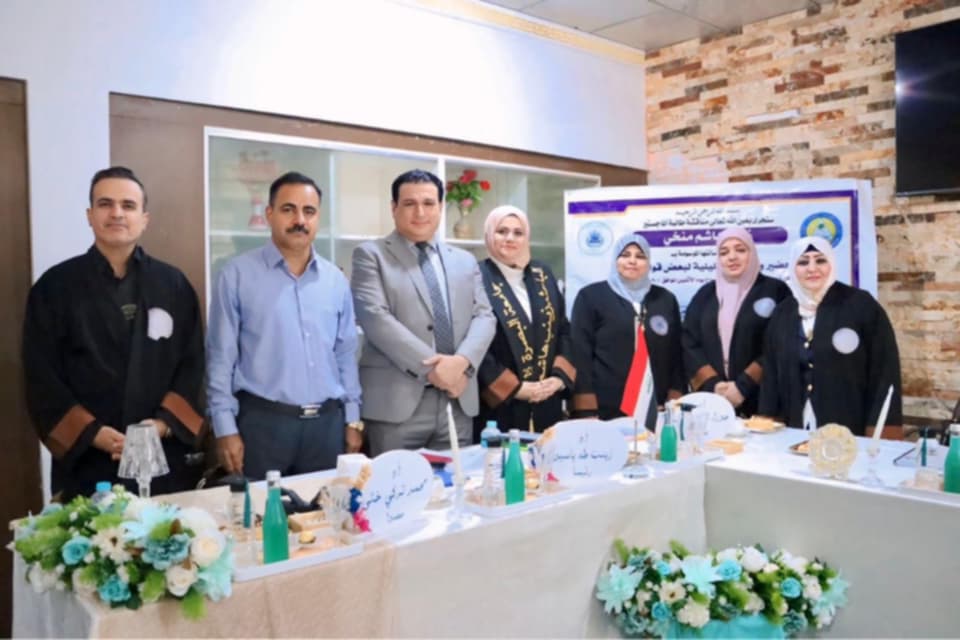
The College of Education for Pure Sciences, Department of Chemistry, has submitted a master's thesis on "Preparation and Analytical Study of Schiff Bases." The thesis, presented by researcher Zainab Hashem Mankhi, concluded that the study resulted in the production of azo-derived polymers, along with their characterization and biological evaluation, with a focus on their antibacterial and thermal properties. This research aims to synthesize the azo compound ZA1, in addition to the polymer derivatives ZP3 and ZP4, and evaluate their biomedical potential. The research used both diazo and coupling processes to synthesize the azo compounds, and phthalic acid was incorporated as a crosslinking agent in the polymerization reaction. Two methods were used to test the resulting materials, including Fourier transform infrared spectroscopy (FTIR) and thermogravimetric analysis (TGA). The antibacterial evaluation of Escherichia coli and Staphylococcus aureus was conducted using the disk diffusion technique against the standard drugs ampicillin and ciprofloxacin. Laboratory research confirmed that polymerization techniques enhanced the antibacterial potency of azo compounds, with ZP4 demonstrating superior results compared to conventional antibiotic treatments. Thermal stability testing using TGA confirmed the appropriate use of the produced polymers in biomedical applications. This research demonstrated that azo-derived polymers exhibit strong potential as antibacterial agents to support medical applications, including wound dressings, antimicrobial coatings, and drug delivery vehicles. These discoveries enable the development of alternative methods to combat antibiotic-resistant bacterial strains. The research reveals the potential for adapting azo-based polymers to healthcare materials through advanced understanding of production, leading to improved antimicrobial performance. The research also reveals modifications that improve the stability and efficacy of the antibacterial agent.









